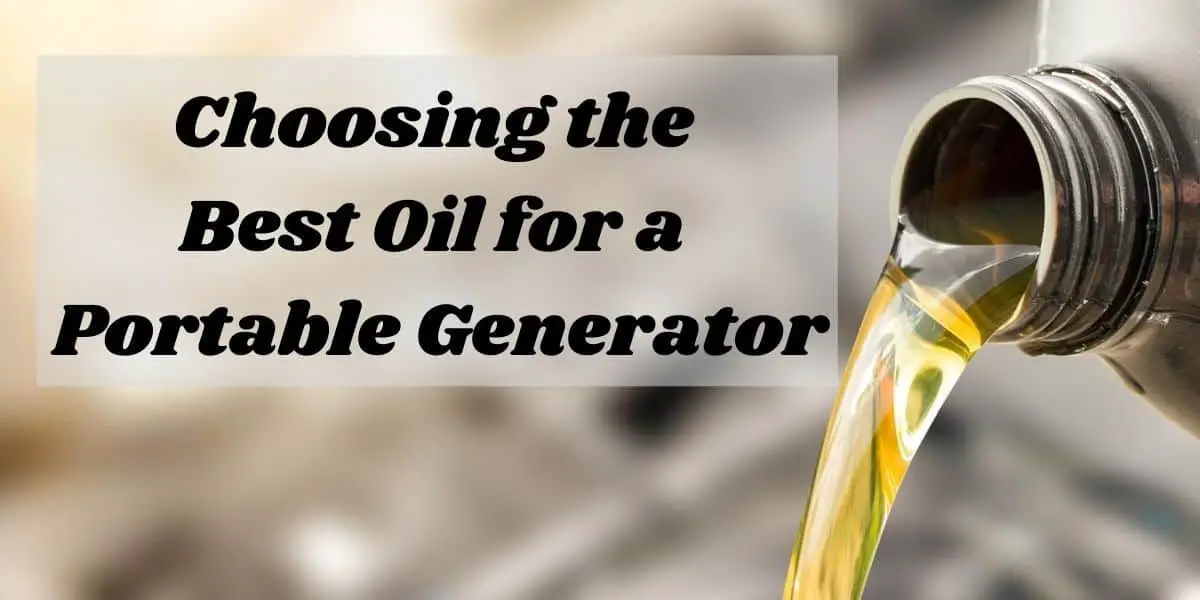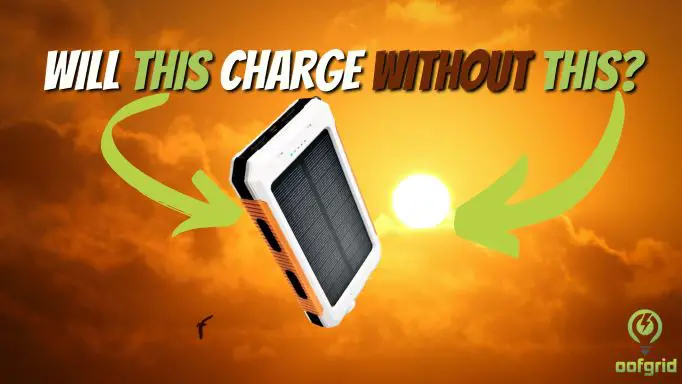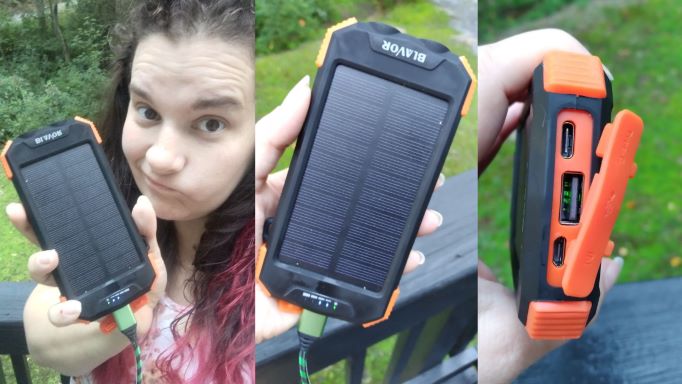At first, choosing an oil for your portable generator can seem a bit daunting. The sheer amount of choice can make it a little bit difficult to narrow down exactly what it is that you need. However, with just a small amount of knowledge, you can refine your search to find just what you’re looking for.
In this article, we’ll guide you towards some choices of the best oils for your portable generator. Hopefully, along the way you’ll also gain some insight into why these oils will work best for you.










Last update on 2025-06-06 / Affiliate links / Images from Amazon Product Advertising API
Contents
How to Choose the Best Oil for your Portable Generator
It may come as a surprise to you that your generator will make use of the same synthetic motor oils that you would see used in your car. This is due to the fact that the internal combustion engines present in generators are very similar to those found in cars.
Generally, we find that the oil most commonly needed is a 10W-30 Oil so here is a quick recommendation for one before we begin. The Castrol GTX 10W-30 Motor Oil will be a good fit for most generators and is of a high-quality making it an excellent choice for an all-around motor oil.
There may be some cheaper options like the Amazon Basic Oil but it’s always better to invest a bit more into your oil to avoid running up repair costs later due to low-quality oil
Up next, we’ll go through some ways to narrow down your search for the right motor oil for your generator- along with giving some insight into why you need a certain type of oil over another.
1. Read the User Manual/Guide
Your first step in finding the right oil for your generator will be to consult a user guide or manual for the generator you are using. This manual should be included with your generator when you purchased it.
Having a good read-through of the manual should be able to shed some light on which kind of oil it is that you will need for your generator. You also might pick up some other information that could prove useful in the usual running of your generator – so it’s definitely worth looking through!
If for some reason, you can’t seem to find a manual included with your generator, you can always go to the manufacturer’s website (maybe Honda or Generac) and see if they have an online copy for you to have a look at.

2. Figure out the Engine Type
Additionally, you should aim to find out the type of engine your generator is using. In regards to portable generators, you will usually find this to be a 2-stroke or a 4-stroke engine – but you need to know which one of these your generator has.
Generally, it’s much more common to find a 4-stroke engine in your generator than a 2-stroke. You will most likely be able to find out which type your engine is by looking at: the packaging of your generator; the user manual of your generator; or looking up your generator on the manufacturer’s website.
Different oils will be used for 2-stroke and 4-stroke engines. In a 4-stroke engine, you make will use the oil and the fuel separate to each other, whereas in a 2-stroke you will use fuel and oil pre-mixed like this Echo Power Blend 1 Gallon Oil Mix (you can also mix it yourself using a recommended ratio).
Most often in 4-stroke engines, you will find SAE 30 oil like this Briggs & Stratton 100005 oil is used, but you can also use some synthetic varieties like SAE 10W-30 or SAE 5W-30.
3. Think About your Oil Viscosity
Oil viscosity is very important when considering which oil is best for your generator. Depending on the viscosity, your oil can either be thicker and slower to flow or thinner and with a quicker flow.
This will also relate to how well suited a certain kind of oil is to different weather – in particular; the cold.
You can find out the viscosity of your oil with extreme ease, as all you have to do is consult the name of your oil of choice. Typically, you will be able to find out what this viscosity should be by reading the instruction manual – as mentioned previously.
Most commonly you will find that you’re recommended the SAE 10W-30 oil type. If we take this name for an example we can break down what it means. SAE is an acronym that stands for the Society of Automotive Engineers as it is their grading system used.
The 10W refers to how viscous the oil will be at 0°F and the -30 refers to how viscous the oil is at 212°F.
4. What is your Operating Temperature?
As we just talked about, the operating temperature of your generator affects what viscosity of oil you will need. If you are going to have to use your generator in extreme conditions, or at least at temperatures below freezing or hotter than usual, then you will need an oil that can keep up.
What this means for you is that, if you want your oil to perform well at lower temperatures, you should choose an oil that has a lower first number – say a 5W-30 oil for example (like this Briggs & Stratton SAE 5W-30 Oil). This oil will be just fine in a generator that operates in temperatures as low as -20°F
Likewise, if you need your performance to be more suited towards hotter temperatures then you will need an oil with a higher second number – an example would be 10W-40 oil (like this Yamalube 10W-40 Oil). This oil will be good to run at temperatures at least up to 100°F
5. Make Sure to Buy from Reliable Brands
For your generator, you want to make sure that you can keep it in good shape so that it lasts as long as you need it to. Buying cheap or low-quality oil is a notable way to decrease the longevity of your generator and cause you problems that can easily be avoided.
It’s always better to spend a little more on a better product that will keep your generator functioning as it should be.
Some reliable, high quality brands you should check out are:
Generac, Schaeffer, Honda, Castrol, Shell, Motor 1, Briggs & Stratton, Onan, Yamalube, Craftsman and Quicksilver
You can also take a look for yourself at the top-rated products on Amazon, just make sure to look at the reviews and see if they’re up to the standard you’re after for your generator.
Final Thoughts
In conclusion, there are a few things to think about when deciding on a motor oil. You can consult your manual or guide to gain some insight into which type of oil you are recommended.
Make sure to take into account the operating temperatures of your surroundings and factor this into the decision of the viscosity of your oil of choice.
Also remember to try and source your oil from reputable brands with high quality products to maintain your generator throughout all its usage.






